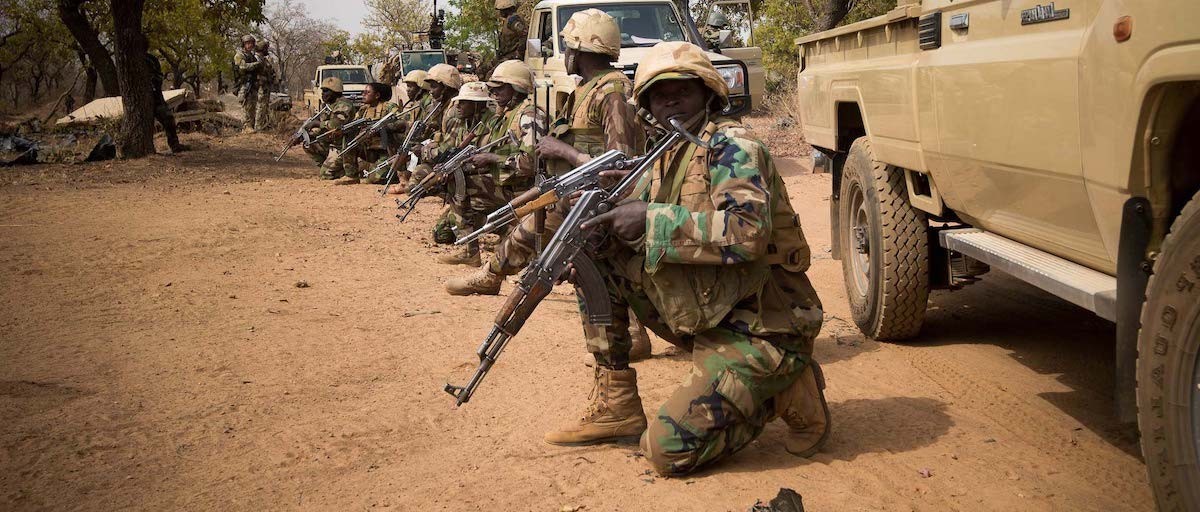Following the defeat of ISIS in Syria, Iraq, and Libya and the expulsion of the group’s fighters from the liberated territory, there is a surge in terrorism in a fragile African West where nations already struggle with poverty, corruption, and internal conflicts. The cowardly terrorist acts committed under absurd religious pretenses and baseless ideological scams claim innocent lives and wreak absolute havoc in vain.
In his January 8 briefing to the UN Security Council, Mohamed Ibn Chambas, the UN special representative and head of the UN Office for West Africa and the Sahel (UNOWAS) sounded the alarm on growing militant and jihadi violence. He focused on Burkina Faso, Mali, and Niger, where casualties from terrorism have increased fivefold since 2016, with 4,000 deaths in 2019 compared to 770 in 2016. He estimated those displaced in their own countries at half a million with an additional twenty-five thousand who have fled across national borders.
Such attacks in Nigeria and West Africa are usually labeled as “jihadi terrorism.” The often unstated assumption is that they are somehow related to international terrorist organizations, such as al-Qaeda or the Islamic State. However, as Chambas noted in his briefing, terrorism, criminal behavior, and intercommunal conflict are often interrelated and local, especially in those large areas in the Sahel where government authority is weak. Chambas said, where the state is weak, “extremists provide safety and protection to populations, as well as social services in exchange for loyalty.” As Chambas went on to say, a key to countering terrorism is winning “the trust and support of local populations.”


























